-
-
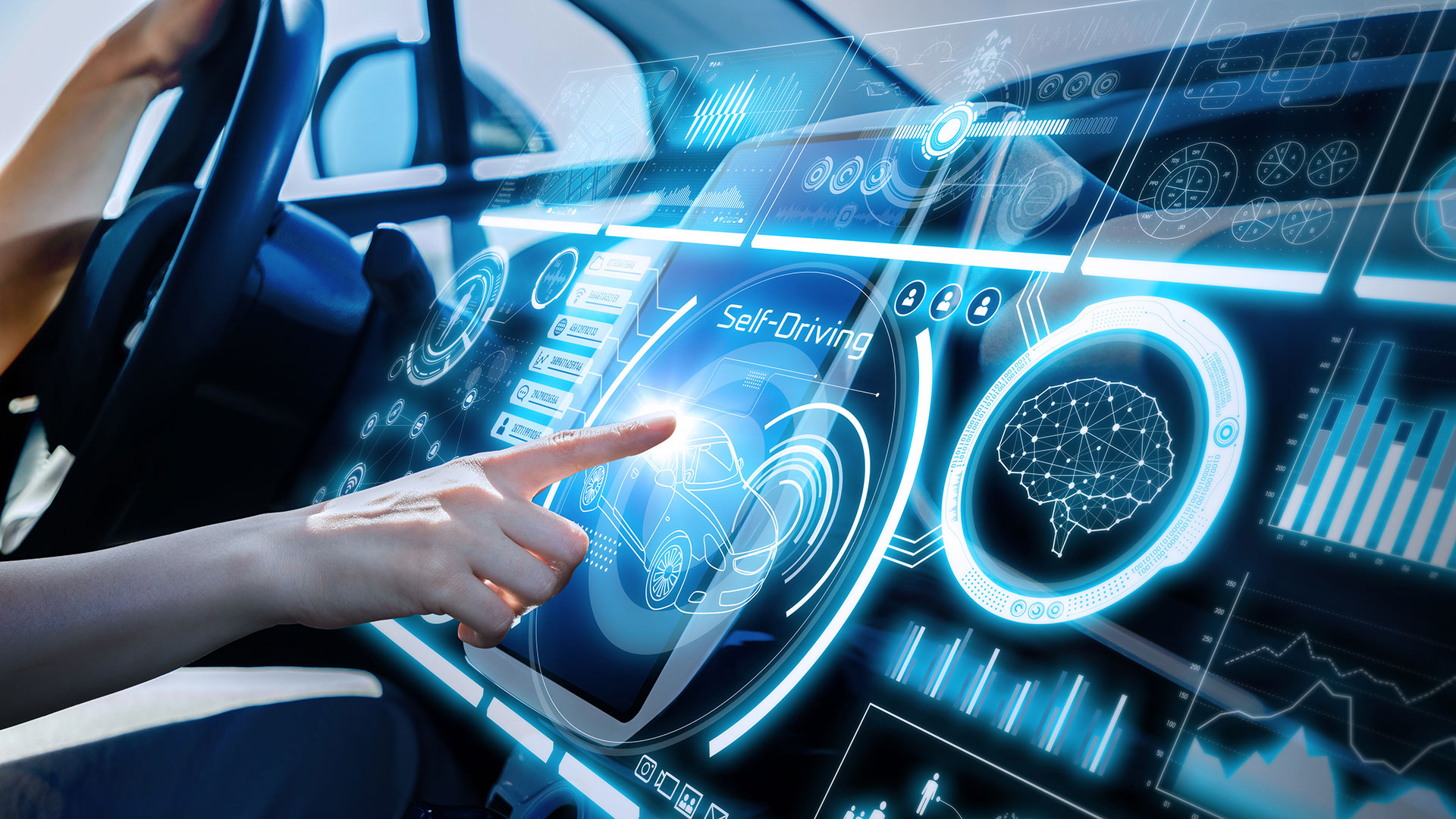
2021 International Conference on Visual Communications and Image Processing (VCIP)
München Technical University of Munich, München, Germany2021 International Conference on Visual Communications and Image Processing (VCIP) wird in Munich, DE vom 2021-12-05 bis 2021-12-08 stattfinden. Die Germany Section CAS Chapter ist ein Sponsor dieser Veranstaltung. https://www.vcip2021.org/ 2021 International Conference on Visual Communications and Image Processing (VCIP) is scheduled to be held in Munich, DE on 2021-12-05 to 2021-12-08. The Germany Section CAS Chapter is a sponsor of this event. https://www.vcip2021.org/
-
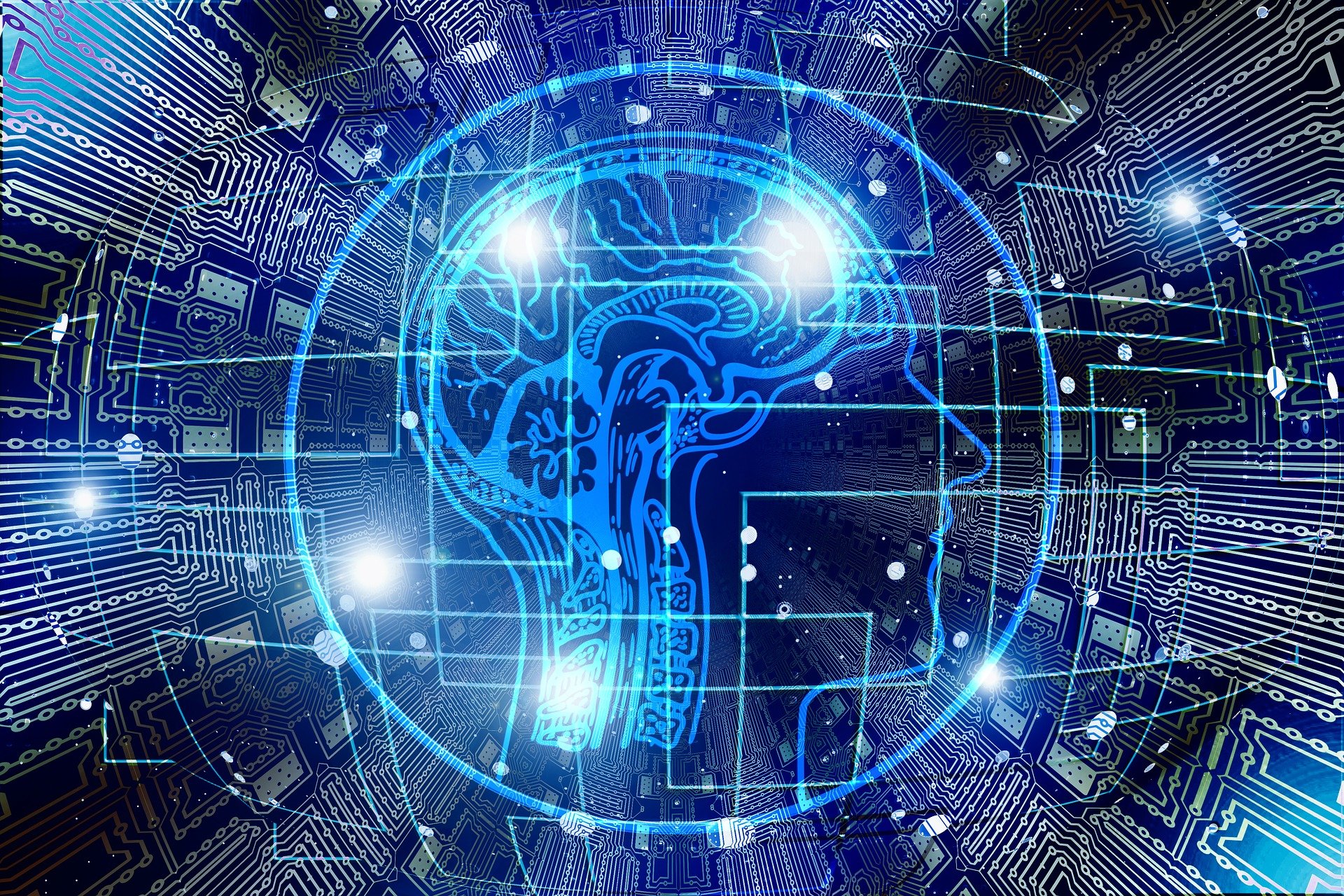
2021 11th International Electric Drives Production Conference (EDPC)
2021 11th International Electric Drives Production Conference (EDPC) is to be held in Erlangen, DE on 2021-12-07 to 2021-12-09. The IEEE Industry Applications Society and IEEE Power Electronics Society are sponsors of this event.
-
-
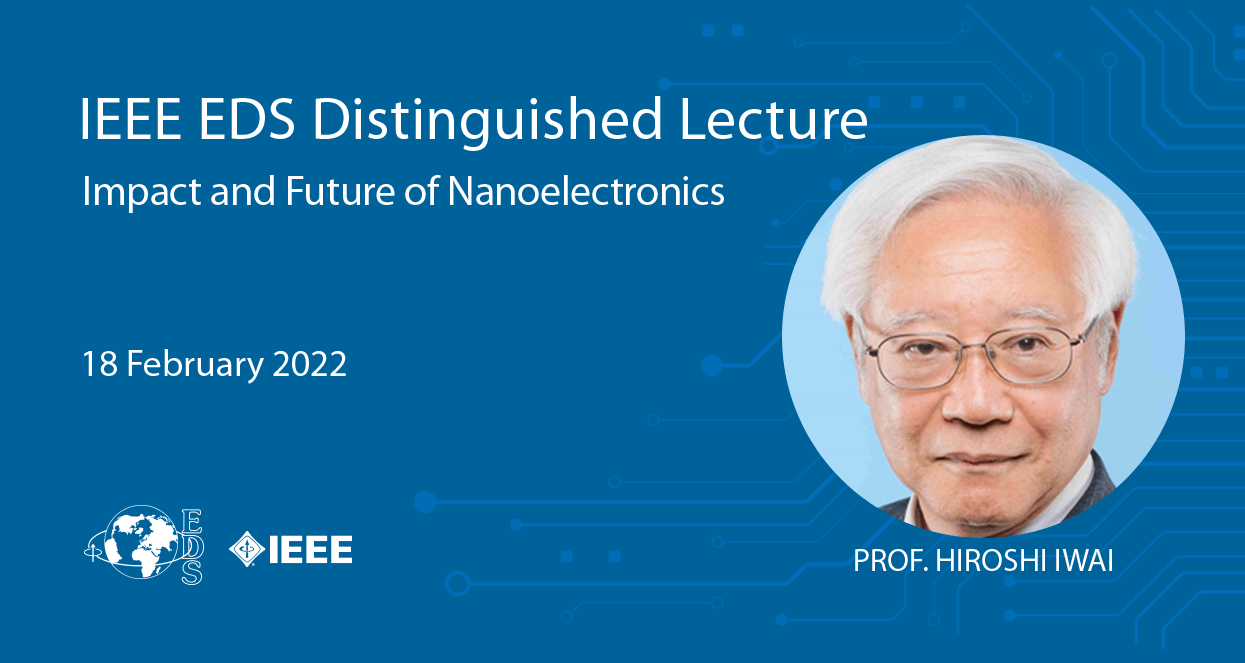
Distinguished Lecture on “Impact and Future of Nanoelectronics”
The EDS Germany Chapter and NanoP proudly presents Prof. Hiroshi Iwai Vice Dean and Distinguished Professor from ICST. NYCU, Taiwan for a Distinguished Lecture on “Impact and Future of Nanoelectronics”. The lecture will be held on 18th February 2022 at 10am Berlin time. Interest participants please register via IEEE vTools by the following link: https://meetings.vtools.ieee.org/m/293182 Abstract: Progress of micro-/nano-electronics in the past 50 years was tremendous. Because of the continuous size reduction of the electron devices, the performance, cost, energy consumption, volume, and weight of electronic machines/systems have improved with the order of billions to trillion times in comparison with the early 1990’s when electronics started with vacuum tubes. Microelectronics started at the beginning of 1970’s with LSI (Large Scale Integrated circuits) with the minimum device feature size of 10 µm providing us the microprocessors, and improved our society dramatically. Now, the nano-CMOS VLSIs (Very Large Scale Integrated circuits) with the minimum feature size of 10 nm order, provided us intelligent smart society with internet, 5G smart phone, and AI machine. While demands of the smart society to high-performance semiconductor devices are increasing, the downsizing of the electron devices is approaching to its limit, and there will be no pico-electronics anymore next to the nano-electronics. In this presentation, the present status and future of nanoelectronics are explained. Hiroshi Iwai Biography: Prof. Hiroshi Iwai was born in Tokyo, Japan and received B.E. and Ph.D. degrees from the University of Tokyo. He worked at Toshiba Corporation from 1973 to 1999, developing NMOS, CMOS, BiCMOS, and mixed-signal LSI technologies and products. In 1999, he moved to Tokyo Institute of Technology and conducted nano CMOS research until 2020. In 2020, he received the Yushan Scholar title from the Taiwan government and worked at ICST, NCTU. He is currently a Vice Dean and Distinguished Chair Pofessor, ICST, NYCU, Taiwan and a Professor Emeritus, Tokyo Institute of Technology, Japan. His received awards include IEEE J.J. Ebers Award, Yamazaki Teiich Prize, IEEE Paul Rapapport Award, IEEE Cledo Brunetti Award, ECS Thomas Callinan Award, and ECS Gordon E. Moore Medal. He is a life fellow of IEEE, anawarded life member and fellow of ECS, and a fellow of IEEJ, IEICE, and JSAP. He served as chairs/members/editors of academic societies/conferences/journals. He served the President of IEEE EDS, the Director of IEEE Division I and Chair of ECS Japan Section.
-
-
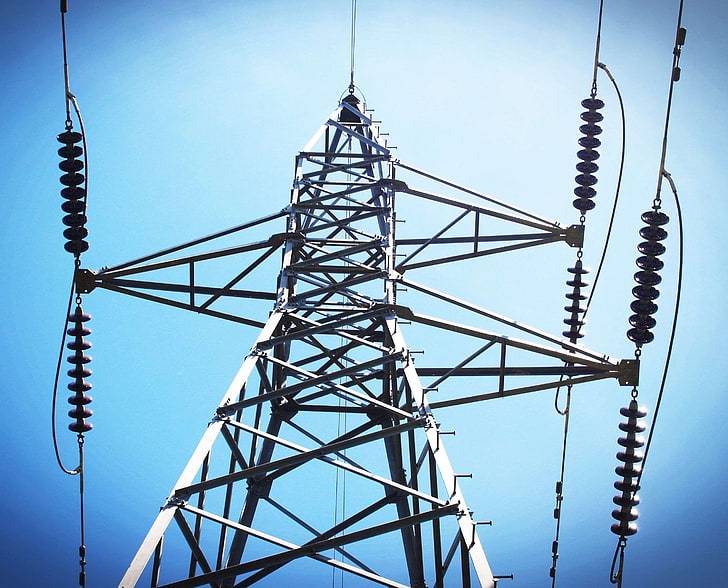
EMC Professional Talk – Andreas Barchanski: E&H – Instant Best Friends Forever
E&H – Instant Best Friends Forever Electromagnetic field theory is probably not the most favorite topic for many engineers, but it is crucial for understanding EMC. Many times, teaching of electromagnetic fields includes a lot of heavy mathematics obscuring the actual physics of electromagnetic fields. In this presentation, I use 3D electromagnetic field simulations to visualize the behavior of fields and how it results in effects that are important for EMC. After a short introduction to the calculation methods, I will discuss concepts that we use daily like voltage, current, power transfer and shielding in terms of electromagnetic fields. Some of the content you will probably have heard of, some of it might be surprising. 08.03.2022, 17:00 Uhr Zoom: https://ovgu.zoom.us/j/65212681357?pwd=T085Q3k5MUtUL01yaDhXNXkybkIzUT09 Meeting-ID: 652 1268 1357 Kenncode: 751648 The slides will be provided on demand after the meeting: http://sites.ieee.org/germany-emc/contact-us/ About the speaker: Dr. Andreas Barchanski - Andreas is a senior solution consultant for electromagnetic simulation at Dassault Systemes in Darmstadt, Germany. After receiving his PhD in numerical electromagnetics from the Darmstadt University of Technology in 2007 he has joined CST that later became a part of Dassault Systems. His main interest lies in the simulation of electromagnetic compatibility of electronic systems, ranging from high-speed digital to power electronics. Organisation: Dr.-Ing. Miroslav Kotzev, Ericsson Antenna Technology Germany IEEE German EMC Chapter - Coordinator Technical Teleconferences ieee_german_emc_chapter_technical_teleconference_AndreasBarchanski_updated
-

EMC Professional Talk – Christian Schuster: Methods of Machine Learning: Tools or Toys for EMC Engineering?
Methods of Machine Learning: Tools or Toys for EMC Engineering? Over the past few years various methods of machine learning (ML) have attracted attention in engineering disciplines. EMC engineering is one of them and in this presentation we try to understand why and how they help with tasks that are essential to EMC. After a short introduction into ML representative EMC related publications are reviewed and results from our own research in the area of power integrity are presented. 22.03.2022, 17:00 Uhr Zoom: https://ovgu.zoom.us/j/65212681357?pwd=T085Q3k5MUtUL01yaDhXNXkybkIzUT09 Meeting-ID: 652 1268 1357 Kenncode: 751648 The slides will be provided on demand after the meeting: http://sites.ieee.org/germany-emc/contact-us/ About the speaker: Christian Schuster received the Diploma degree in physics from the University of Konstanz, Germany, in 1996, and the Ph. D. degree in electrical engineering from the Swiss Federal Institute of Technology (ETH), Zurich, Switzerland, in 2000. Since 2006 he is full professor and head of the Institute of Electromagnetic Theory at the Hamburg University of Technology (TUHH), Germany. Prior to that he was with the IBM T. J. Watson Research Center, Yorktown Heights, NY, where he was involved in high-speed optoelectronic package and backplane interconnect modeling and signal integrity design for new server generations. His currents interests include signal and power integrity of digital systems, multiport measurement and calibration techniques, and development of electromagnetic simulation methods for communication electronics. Within the IEEE he was serving as a Distinguished Lecturer for the EMC Society in the period 2012-2013, as a member of the Board of Directors of the EMC Society in 2015, and as the Chair of the German IEEE EMC Chapter in the period 2016-2019. Currently he is an Associate Editor for the IEEE Transactions on EMC and again a member of the Board of Directors of the EMC Society. Organisation: Dr.-Ing. Miroslav Kotzev, Ericsson Antenna Technology Germany IEEE German EMC Chapter - Coordinator Technical Teleconferences ieee_german_emc_chapter_professional_talk_Christian_Schuster_updated
-
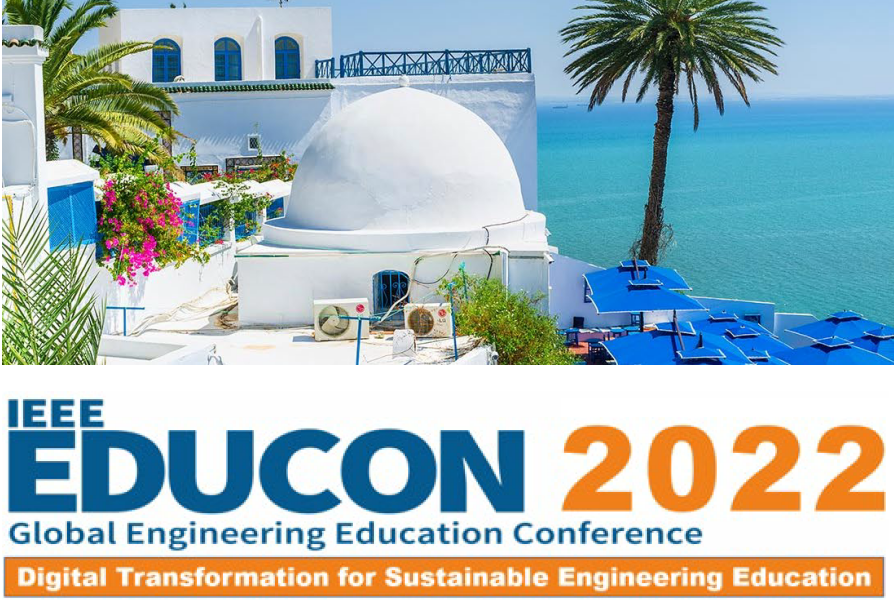
IEEE Global Engineering Education Conference (EDUCON) 2022
Online / Hybrid, Tunisia Gammarth, TunisiaThe IEEE Global Engineering Education Conference (EDUCON) 2022 is the 13th in a series of conferences that rotate among central locations in IEEE Region 8 (Europe, Middle East, and Africa). EDUCON is the flagship conference of the IEEE Education Society. Held every year since 2010, EDUCON provides an opportunity to scientists, professional engineers, and students to present their work, publish their results, exchange ideas and network for future scientific and industrial collaborations. The conference will continue to serve as a catalyst for connecting local and international stakeholders hence adding value to the global dialogue on how to positively contribute to the solution of the world’s engineering education. Accepted and presented papers will be published in the conference and will be submitted to the IEEE Xplore Digital Library and appear in the Conference Proceedings Citation Index (CPCI) - an integrated index within Web of Science. call for papers educon 2022
-
-

2022 IEEE 7th 5G++ Summit Dresden
2022 IEEE 7th 5G++ Summit Dresden wird in Dresden vom 2022-05-12 bis 2022-05-12 stattfinden. Die IEEE Communications Society ist ein Sponsor dieser Veranstaltung. http://5gsummit.org/dresden/ 2022 IEEE 7th 5G++ Summit Dresden is scheduled to be held in Dresden on 2022-05-12 to 2022-05-12. The IEEE Communications Society is a Sponsor of this event. http://5gsummit.org/dresden/
-

EMC Professional Talk “New Developments in Antenna Measuring Techniques”
Online , GermanyNew Developments in Antenna Measuring TechniquesAntennas are wave mode changers, that are classically described by a set of antenna parameters such as input impedance, gain, directivity, antenna factor and radiation diagram. Due to progressing complexity and integration of transmission systems, the exact knowledge of these parameters is getting more and more important. For the measurement of quantities conforming to standards, different measurement setups in absorber chambers and on open-area test sites exist. With progressing computational capabilities, computationally intensive methods based on near-field-to-far-field transformation gain importance. Flying measurement platforms based on autarkic multicopters are used for the characterization of large stationary antenna systems. The talk shows somenew developments. 12.05.2022, 17:00 Uhr Zoom: https://ovgu.zoom.us/j/65212681357?pwd=T085Q3k5MUtUL01yaDhXNXkybkIzUT09Meeting-ID: 652 1268 1357Kenncode: 751648 About the speaker:Thomas Kleine-Ostmann was born in Lemgo, Germany, in 1975. He received the M.Sc.degree in Electrical Engineering from the Virginia Polytechnic Institute and State University, Blacksburg, VA, USA, in 1999, the Dipl.-Ing. degree in Radio Frequency Engineering from Technische Universität (TU) Braunschweig, Germany, in 2001, and the Dr.-Ing. degree from TU Braunschweig, Germany, in 2005. Since 2006, he has been with the Electromagnetic Fields Group, PTB, Braunschweig, working as a permanent scientist. Currently, he is working on realization and transfer of the electromagnetic field strength, electromagnetic compatibility, antenna measuring techniques and THz metrology. In 2007, he became head of the Electromagnetic Fields Group, in 2012, of the Electromagnetic Fields and Antenna Measuring Techniques Group, and in 2020, of the Department High Frequency and Electromagnetic Fields. Dr. Kleine-Ostmann is a lecturer at TU Braunschweig since 2007. After his habilitation in the field of radio frequency engineering he was appointed Privatdozent becoming an external faculty member in 2014. He is giving lectures on Microwave and Wireless Metrology. Dr. Kleine-Ostmann is a member of the VDE and the URSI. He received the Kaiser-Friedrich Research Award in 2003 for his work on a continuous-wave THz imaging system. Organisation:Dr.-Ing. Miroslav Kotzev, Ericsson Antenna Technology GermanyIEEE German EMC Chapter - Coordinator Technical Teleconferences ieee_german_emc_chapter_professional_talk_Kleine-Ostmann
-

2022 IEEE International Memory Workshop (IMW)
The conference is scheduled to be held in Dresden, DE on 2022-05-15 to 2022-05-18 with IEEE Electron Devices Society participating as a sponsor of this event.
-

2022 14th German Microwave Conference (GeMiC)
Ulm Ulm, Germany2022 14th German Microwave Conference (GeMiC) wird in Ulm, DE vom 16.05.2022 bis 18.05.2022 stattfinden. Die Germany Section AP/MTT Joint Chapter ist ein Sponsor dieser Veranstaltung. 2022 14th German Microwave Conference (GeMiC) is scheduled to be held in Ulm, DE from 16.05.2022 to 18.05.2022. Die Germany Section AP/MTT Joint Chapter is a sponsor of this event. Authors are invited to submit technical papers describing original work in the fields of "Electronics and Active Circuits", "Passives, EM, and Antennas", and "Systems and Sensors". https://www.gemic2022.de/conference/call-for-papers/ Abstract Submission opens: 25.10.2021 Abstract Submission due: 20.12.2021 Notification of Acceptance: 07.02.2022 Final Papers due: 04.04.2022 GeMiC 2022: 16. - 18.05.2022
-

2022 ESA Workshop on Aerospace EMC (Aerospace EMC)
Potsdam , Germany2022 ESA Workshop on Aerospace EMC (Aerospace EMC) wird in Potsdam vom 2022-05-23 bis 2022-05-25 stattfinden . Die IEEE Electromagnetic Compatibility ist ein Sponsor dieser Veranstaltung. https://atpi.eventsair.com/emc-2022/ 2022 ESA Workshop on Aerospace EMC (Aerospace EMC) is scheduled to be held in Potsdam on 2022-05-23 to 2022-05-25. The IEEE Electromagnetic Compatibility is a sponsor of this event. https://atpi.eventsair.com/emc-2022/
-
Call for Papers – IEEE Communications Standards Magazine SI on 5G Advanced
3GPP provided the specifications of 5G in Release 15. Releases 16 and 17 provided improvements to the system performance and supported the integration of new scenarios for verticals. The upcoming Release 18 will define “5G Advanced,” a milestone towards 6G. Artificial Intelligence (AI) and Machine Learning (ML) will be new key components of 5G Advanced. They got already introduced in Release 17 for network automation, but are expected to play a more prominent role for network and service management as well as orchestration in real- and non-real-time. It is expected that AI/ML will boost the performance in all layers of the network, particularly in the orchestration of the emerging technologies of the mobile core and Radio Access Network (RAN). New services, such as Extended Reality (XR), will be considered together with the improvements of the 5G system. Efforts will be also spent on improving further other existing services and features, such as network slicing, Uncrewed Aerial Vehicles (UAV), Multi-Access Edge Computing (MEC), Non-Public Networks (NPN), Multicast and Broadcast Service (MBS), enhanced Mobile Broadband (eMBB); and Non-Terrestrial Network (NTN) integration. Scope of Contributions This Special Issue (SI) is intended to provide tutorial information and original research articles to the IEEE Communications Standards Magazine readers on 5G Advanced. Topics of interest include (but are not limited to): Enhancements to UAV with system and service aspects 5G System Support for AI/ML based services Architecture enhancements for XR and media services MEC Enhancements Enhanced support for non-public networks Technological enablers for network automation Enhancements for non-terrestrial networks and satellite access Privacy and security enhancements for 5G Advanced Network slicing enhancements NR coverage and mobility enhancements AI/ML for new generation RAN and O-RAN AI/ML and closed loop automation in 5G advanced core Life cycle management of AI/ML Network exposure capabilities towards verticals Distribute ledge technology for the 5G Advanced Enhanced security towards zero trust Power saving enhancements Enhancements for enhanced Mobile Broadband Enhanced support for Industrial IoT and Digital Twin Submission Guidelines Manuscripts should conform to the standard format as indicated in the Information for Authors section of the Paper Submission Guidelines. All manuscripts to be considered for publication must be submitted by the deadline through Manuscript Central. Select “December 2022/5G Advanced” from the drop-down menu of Topic/Series titles. Important Dates Manuscript Submission Deadline: 31 May 2022 Decision Notification: 31 October 2022 Final Manuscript Due: 15 November 2022 Publication Date: December 2022 Guest Editors Andreas Kunz Lenovo/Motorola Mobility Tarik Taleb University of Oulu George Alexandropoulos National and Kapodistrian University of Athens Konstantinos Samdanis Nokia JaeSeung Song Sejong University
12 events found.
